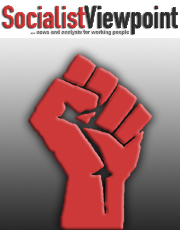If It’s African, It’s TRIBAL
With the ignition of post-election violence in Kenya, came the traditional themes from the Western press: tribal hatreds, ethnic enmity, and almost joyous reporting of the spasms of violence wracking the country.
Joyous, because such violence was useful in convincing Western readers, viewers and listeners of the inherent wildness of foreign lands, and by implication, the peaceful and civil nature of the West. Tribal has become a kind of journalistic shorthand for Black or brown people.
As usual, the real story is a bit more complex. And Americans don’t really do complex very well.
The violence, while admittedly breathtaking, is (as most mass violence is), the result of political elites directing the poor and the young to stir the cauldron of conflict, for their political ends.
Kenya, like most post-colonial states, was saddled at the dawn of independence with pressures from colonial powers to keep economic systems essentially unchanged. Thus, many independence leaders became junior partners with international capital, and therefore became individually wealthy, while the poor and working classes of their countries became more ruthlessly exploited.
When the Western media writes of Kenya’s “stability,” they actually mean the ease with which Western capital can exploit profits from the nation. Over a generation ago, the brilliant Kenyan writer Ngugi wa Thiong’o, in the novel Devil on the Cross, penned a passage featuring Western businessmen training their Kenyan partners in crime. These European and Kenyan business leaders meet in a dark, subterranean cave, and like demons in hell, they rejoice in their abilities to fleece the poor, and empty the coffers of the nation.
The boss of bosses was an American businessman, who lectured his assembled throng on the real meaning of“free trade”:
“We believe in freedom, the freedom that allows one to rob and steal according one’s abilities. That’s what we call personal initiative and individual enterprise. And that’s why we have always stated that we belong to the Free World, a world where there is absolutely no barriers to stealing from others....” [p.173]
Kenya has experienced spasms of truly mind-numbing violence, but the hidden hands behind the violence haven’t been written about in most U.S. media sources. That’s too complex; and it doesn’t fit the corporate media’s favored pattern.
But a brief reading of several articles in the influential African Times/U.S.A, a bi-monthly printed in Hawthorne, California, provides us with a nuanced, politically savvy, informed and historical picture of the Kenyan crisis. African journalists, writers and scholars provide an important insight into Kenyan life that’s woefully absent in most of the Western press. Several articles stressed the violence and corruption of the reign of Daniel arap Moi, whose presidency has been almost ignored in the Western and Kenyan news accounts. Others focused on elite wheeling and dealing among the wealthy. They unite in telling us that political power is about who will get the privilege of milking the nation for foreign capital.
That kind of violence, no less tragic than that of recent weeks, is invisible to us as we are lost in the mists of “tribes.”
[Sources: Thiong’o, Ngugi wa, Devil on the Cross (Heinneman: 1982); Njoya, Wandia, “Is Daniel Arap Moi An Essential Link Between Kenya’s Past and Painful Present?”,The African Times (January 15-31, 2008), pp.3-12.; Campbell, Horace, “Drama Of the Popular Struggle for Democracy in Kenya,”The African Times , (January 15-31, 2008), pp.5-8]
—Prisonradio.org, February 12, 2008


